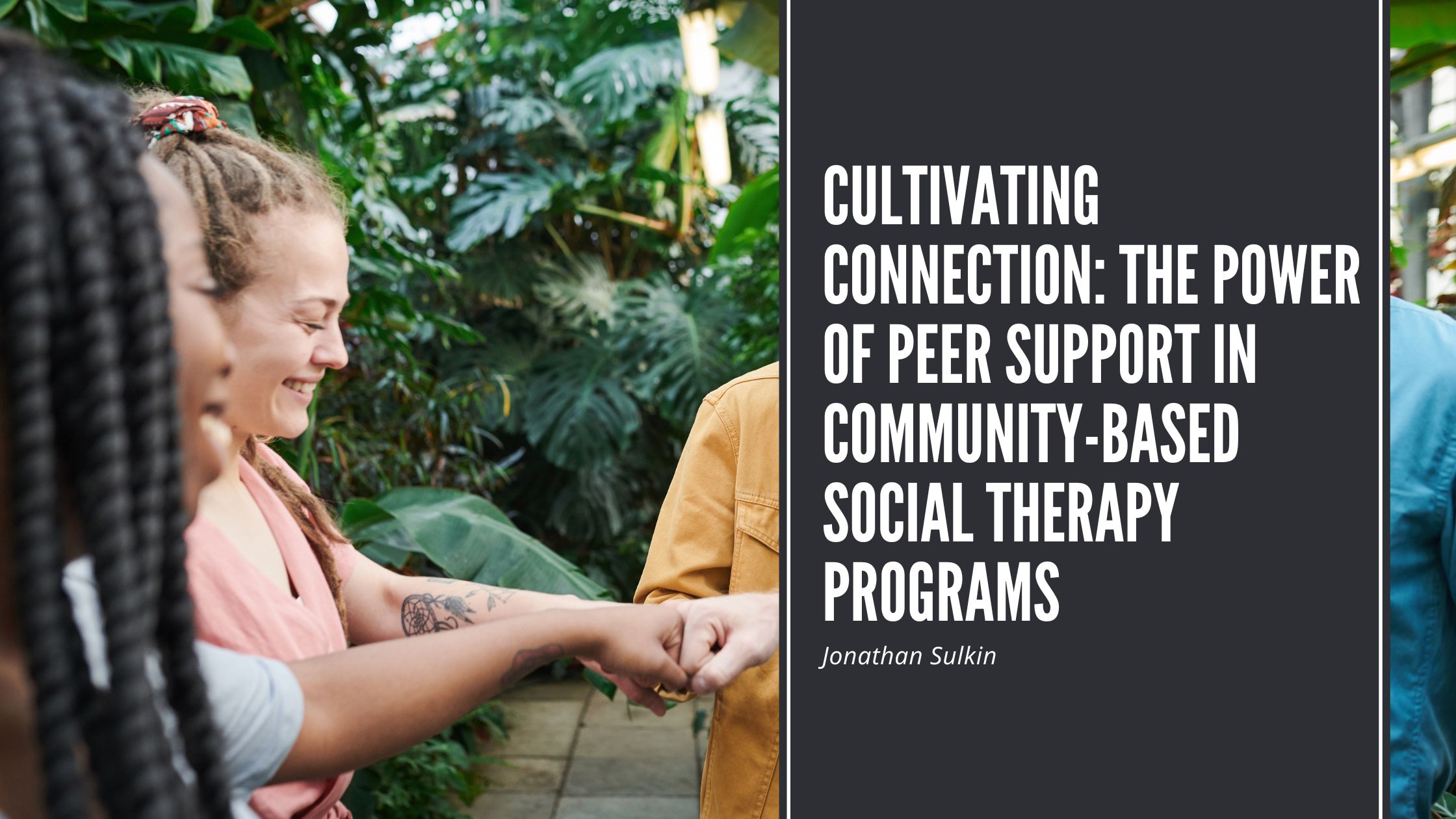In community-based social therapy programs, peer support plays a vital role in fostering connection, empowerment, and healing among participants. These programs provide a supportive space where individuals facing similar challenges can come together to share their experiences, offer support, and learn from one another. In this blog post, we’ll explore the transformative power of peer support in these programs and how it contributes to individual and collective well-being.
Peer support creates a sense of belonging and camaraderie among participants in community-based social therapy programs. By connecting with others who have faced similar struggles, individuals feel less isolated and alone in their experiences. Sharing stories, insights, and coping strategies with peers validates their feelings and experiences, reduces feelings of shame and stigma, and fosters a sense of solidarity and understanding.
Moreover, peer support in community-based social therapy programs promotes empowerment and agency among participants. Rather than relying solely on professionals or experts, individuals are encouraged to actively participate in their healing journey and support one another. Peer-led discussions, workshops, and activities empower participants to share their knowledge, skills, and strengths and take ownership of their recovery process.
Furthermore, peer support provides unique emotional and practical assistance to individuals in community-based social therapy programs. Peers offer empathy, validation, and encouragement to one another, creating a supportive and nurturing environment where everyone’s voice is valued and respected. Additionally, peers share practical tips, resources, and strategies for managing symptoms, navigating challenges, and building resilience in everyday life.
Additionally, peer support in community-based social therapy programs fosters mutual learning and growth among participants. Through peer-led discussions, skill-building exercises, and group activities, individuals learn from each other’s experiences, perspectives, and insights. Peer mentors and role models inspire hope and optimism, demonstrating that recovery is possible and achievable with the proper support and determination.
Moreover, peer support in community-based social therapy programs promotes social connectedness and community engagement. By fostering meaningful relationships and networks of support, individuals are more likely to participate in community events, activities, and initiatives and contribute to the well-being of their communities. Peer-led advocacy and activism empower participants to raise awareness, challenge stigma, and advocate for change on issues that matter to them.
In conclusion, peer support is a cornerstone of community-based social therapy programs, providing participants with essential emotional, practical, and social support. By fostering connection, empowerment, learning, and community engagement, peer support contributes to individual and collective well-being and resilience. As we continue to navigate the challenges of our time, let us recognize and celebrate the transformative power of peer support in building stronger, more connected, and more resilient communities.

